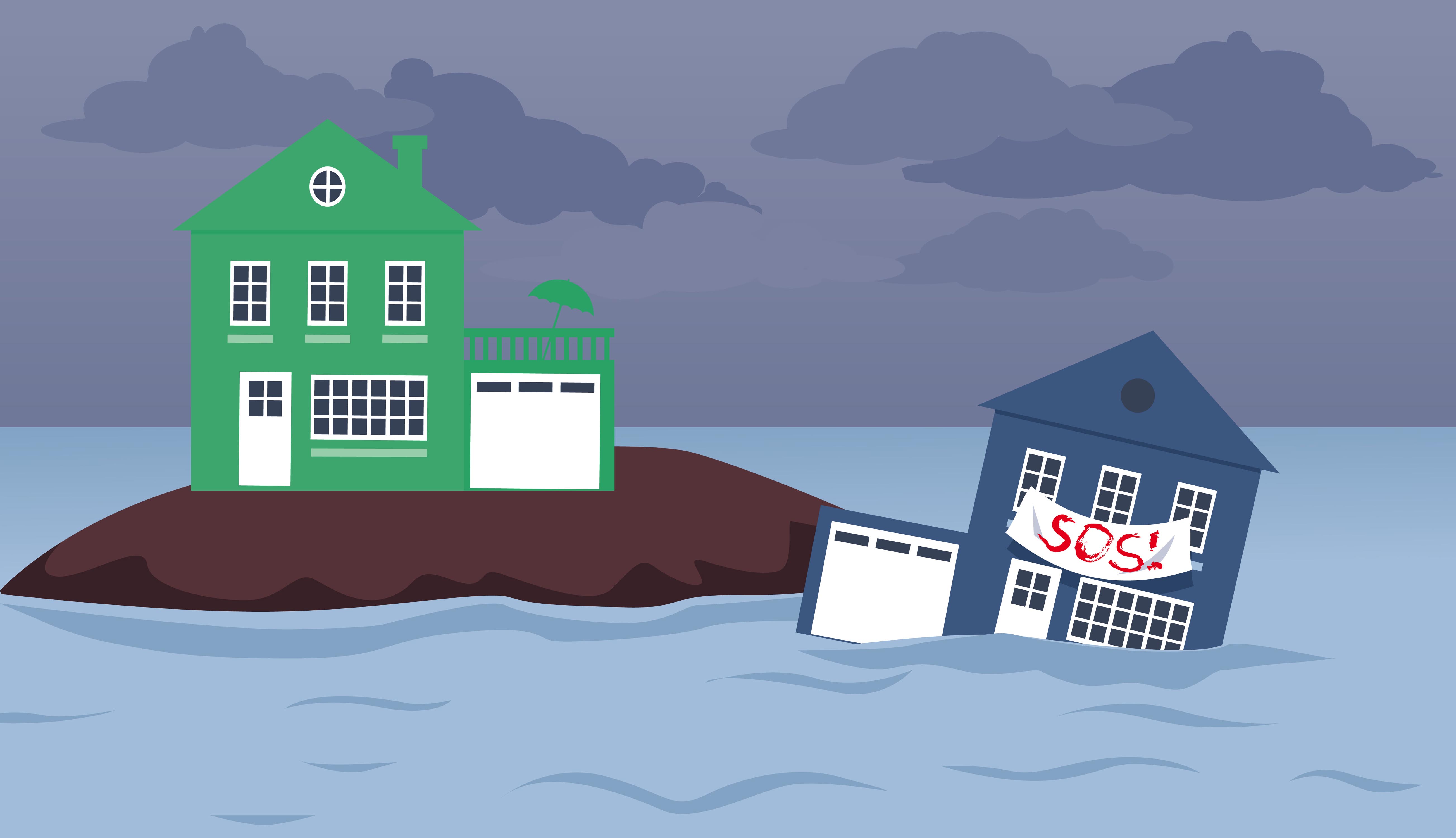8 Valuation Risk Factors Lenders Use

While your personal situation; savings, credit, income, etc. play a part in a lender’s decision, there is another type of risk factor that banks concern themselves with; valuation risks.
Lenders rate each factor on a scale from one to five, then make their finance decision based on both your personal situation and valuation details of the investment property you’re asking them to lend on.
1. Location
Is the property in a highly desired location? Is it close or far away from amenities?
Obviously the closer a property is to key amenities such as employment, transportation and education, the better the rating the suburb will receive.
2. Environmental
Properties in flooding and bush-fire zones will of course rate as a higher risk compared to properties in different suburbs.
In some cases, properties that are near power lines could pose some concern, however no consensus has been reached about their impact, so it may not even be a concern for your lender.

3. Improvements
Newer homes will typically rate better than older homes, however if a home shows sign of good maintenance and any improvements are finished to a good standard, it can still attain a good rating.
4. Land size
Issues such as zoning, title and access can impact the marketability of a property.
Lenders will want to ensure that each of these factors are satisfactory and that no outstanding problems can arise that will impact their investment.

5. Volatility
Lenders want to know whether or not a suburb could be subject to market volatility.
6. Market
Lenders will often ask valuers about what’s going on in the market and where it appears to be headed.
Bottom line, they want to know if they can expect a reduction in value in the next two to three years.
7. Local economic conditions
Locations where there are very few employers and/or where the employers are in a high turnover industry (e.g. mining) will rate as more of a risk than areas where there are a number of employers in a diverse range of industries.

8. Market sector
Where does your property lie in terms of saleability?
Lenders want to know that your investment property can be sold (and they can recoup their costs) in a reasonable amount of time should it become necessary.
How to avoid buying a high risk property
So if you’re trying to choose an investment property, how do you avoid buying one that lenders would consider a high risk?
Buy a property that:
- Is in a quiet location (avoid main roads)
- Appeals to the majority of the area demographic
- Is affordable for the majority of the area demographic to buy
- Has been well maintained
- Is close to amenities
While there are no guarantees, if you know what valuers look for you’ll be able to choose properties that will return lower risk ratings and that won’t get knocked back by lenders.
If you’re interested in investing in property, register to attend our next Property Investor Night.
At these FREE events held all across the country we discuss where the growth markets are right now, and share ways you can navigate your way to financial freedom through investing in property.
Seats fill up fast, so book yours now!

Successful Property Investors Don’t Quit Their Day Job
You need that income! One of the primary things you need to be a successful property investor is a job. Why? Because you need money. You need a job to borrow money. You need savings or some cash to buy your first property. But the sad fact is, a lot of people...
6 Ways To Speed-Up Your Next Property Purchase
Get There Faster If you are already a property investor with one or even two properties, first of all, congratulations. You’ve taken some seriously great steps in creating your future wealth and a pathway to a work-less, play-more retirement with passive...
Property investing: Five ways to create cashflow boom!
When it comes to property investment there are some things you can never have enough of.
When it comes to property investment there are some things you can never have enough of. Good tenants, reliable builders, a great relationship with your bank.
But more than anything what you need is good cash flow.
Having a steady income of cash means never having to dip into your own pocket to top up repayments, complete repairs or make another purchase.
Here are the top five ways you can ensure the cash keeps flowing, so you can keep your investment portfolio growing.
Lock it in! How to protect your equity
Don’t be caught without it.
As a property investor who is building a portfolio, it’s vital that you have access to your equity whenever you need it.
There’s nothing more frustrating than finding that perfect new property to purchase, only for it to be held up – or worse still, lost completely – because your finances weren’t in good shape.
Having an interest-only loan structure with a healthy off-set account is a great way to ensure you have equity at your fingertips whenever you need it, but that’s not the only way…



